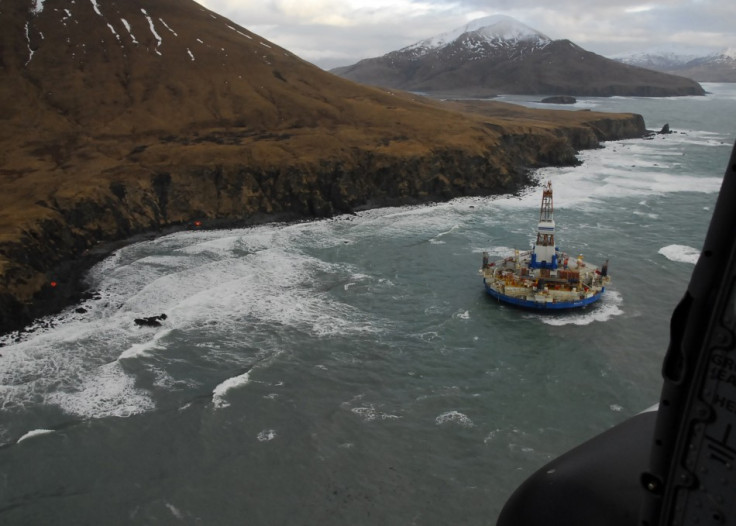Shell Accused by US Lawmaker of Moving Alaska Oil Rig to Avoid $6m Tax Bill [VIDEO]

A US lawmaker has accused Shell of grounding a major oil rig one day before it would have been liable to pay millions of dollars in taxes had it stayed in its original position off the Alaskan coast.
In a letter from the top Democrat on the House of Representatives Natural Resources Committee to Shell's top US chief, Marvin Odum, Edward Markey of Massachusetts said Shell decided to run its 30-year-old Kulluk drillship aground on New Year's Eve "in part, by a desire to avoid ... tax liability on the rig."
On 31 December, Shell claimed that "near hurricane" conditions were to blame for the migration of its major drillship. However, if the rig stayed off the coast of Alaska until 1 January, Shell may have been exposed to a state 2 percent tax rate on all drilling equipment. Markey says Shell's claim that bad weather prompted the move was inconsistent with reports from the National Weather Service.
Markey calculated the bill would have been around $6m (£3.7m/€4.5m). Shell has spent around $292m to upgrade the rig and $4.5bn to develop the Arctic's vast oil reserves since 2005.
While, a Shell spokesperson told IBTimes UK:
"I can confirm we have received the letter from Mr Markey and we are considering our response. The plan was always to move the Kulluk in December. While we are aware of the tax environment wherever we operate, the driver for operational decisions is governed by safety. In this case, our decision was based on an approved tow plan, which included weather considerations, and safely executing a planned maintenance schedule for the vessel."
"During the journey across the Gulf, the weather shifted unexpectedly. We rely on experienced, contract meteorologists that serve Shell operations around the world for our weather assessments. Weather is dynamic and can be unpredictable, but you use the best information you have. The models that informed our December 21st departure date indicated a forecast that was within operational thresholds for the journey east," the statement added.
Markey has challenged that view, saying the Natural Resources Committee and NWS only delivers five-day marine forecasts in Alaska and shortly after Shell began moving the rig, the NWS forecast began showing the presence of severe weather offshore in Alaska, during the period Shell would attempt to move the Kulluk.
"Reports that financial considerations rather than safety may have factored into Shell's considerations, if true, are profoundly troubling," said Markey, noting that Shell also ceased regular conference calls with the NWS in mid-November and does not appear to have contacted the agency prior to deciding to move the rig.
Earlier this week, Alaska's Republican governor, Sean Parnell, said in a statement that "the temporary grounding of the Kulluk was unfortunate, and we commend all who strove to ensure that people and the environment remained safe during the response effort."
"Some anti-drilling organizations are using this transportation mishap to demand an immediate halt to offshore drilling. We disagree. Many wells have been safely drilled in the Arctic Outer Continental Shelf, and the development of offshore oil production is a critical part of our energy future. We believe it is strongly in the state's and the nation's interest that we continue to responsibly explore the vast hydrocarbons known to be available in the shallow waters of the Arctic OCS," he added.
Markey, who is an outspoken critic of the oil industry, had previously queried Shell on their contingency plans for such an accident as well as Shell's previous testing failure of a containment dome for Arctic oil spills.
While Markey has taken a hardline approach to Shell's decision to move the oil rig, a number of other factors have complicated the situation.
Before the migration, the drillship was in Federal waters and Jim Greeley, an Anchorage-based petroleum property assessor for the Alaska Department of Revenue said that "there's no tax precedent for that."
He also said that the tax applies to property used for exploration, production or transportation of oil or natural gas and would not confirm whether Shell would have been liable to pay the tax that Markey outlined.
© Copyright IBTimes 2024. All rights reserved.























